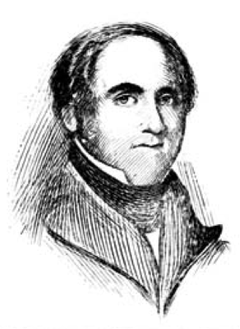Charles Morris (surveyor general)
| Charles Morris | |
|---|---|
 |
|
| Surveyor General | |
|
In office 1748–1781 |
|
| Monarch | George III |
| Succeeded by | Charles Morris (1731–1802) |
| Chief Justice of the Nova Scotia Supreme Court | |
|
In office 1776–1778 |
|
| Preceded by | Jonathan Belcher (jurist) |
| Succeeded by | Bryan Finucane |
| Personal details | |
| Born |
June 8, 1711 Boston, Massachusetts |
| Died | November 4, 1781 (aged 70) Windsor, Nova Scotia |
| Relations | Charles Morris (1731–1802), son; Charles Morris (1759–1831), grandson |
| Religion | Church of England |
Charles Morris (8 June 1711 – buried 4 November 1781) army officer, served on the Nova Scotia Council, Chief Justice of the Nova Scotia Supreme Court (1776-1778) and, the surveyor general for over 32 years, he created some of the first British maps of Canada's maritime region and designed the layout of Halifax, Lunenburg, Lawrencetown, and Liverpool. In Halifax he laid out both the present-day down town core and the Halifax Common.
He was born in Boston and when he first came to the colony he fought in the Battle of Grand Pre. The maps he produced and information he gathered about the disposition of Acadians villages during his surveying of the colony was later used by the Military authority in Halifax to initiate the Expulsion of the Acadians during the French and Indian War.
He fought for and won the establishment of the Nova Scotia House of Assembly (1758). Morris was instrumental in establishing New England Planters in the colony.
As chief justice, his most famous trial was of those who participated in the Eddy Rebellion (1776) at the outbreak of the American Revolution.
Endnotes
Texts
...
Wikipedia
